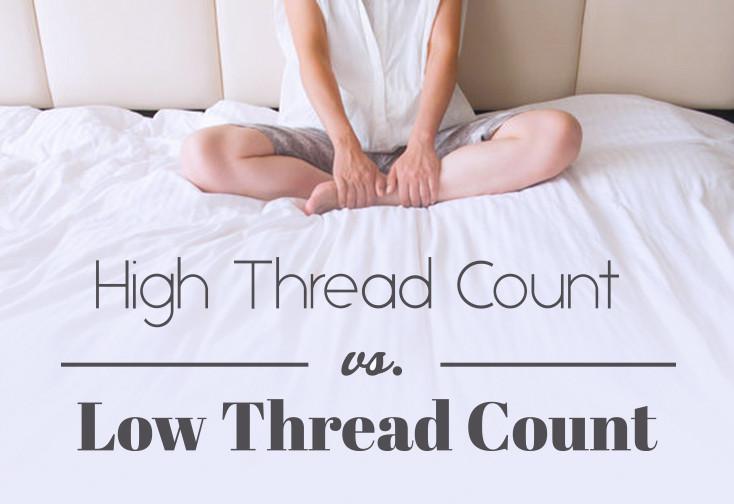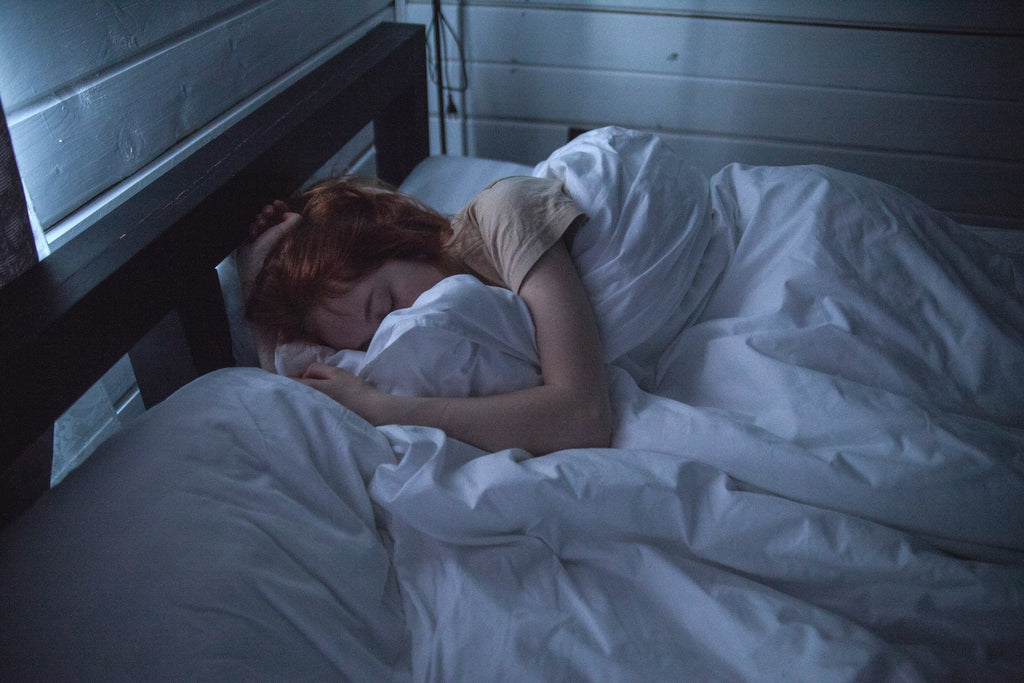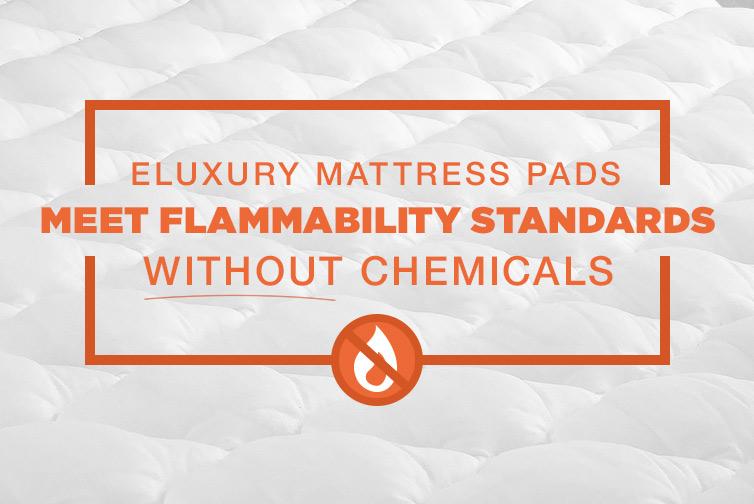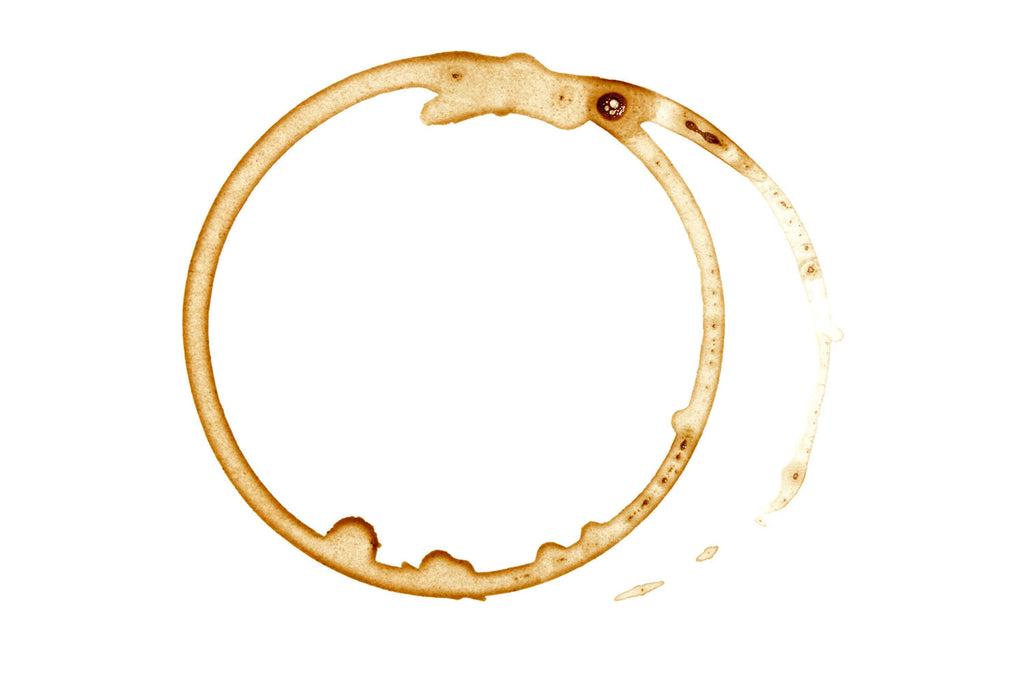
High Thread Count Sheets Vs. Low Thread Count Sheets

It's time for another edition of our Customer Service FAQ! One of the most common questions that we get here in Customer Service is about the difference between the high thread count vs. the low thread count of our Cotton Sheets.
You spend 1/3 of your life in bed, so you need to know as much about your sheets as possible … and we are here to help! Today, we’re here to clear up any confusion you may have about thread counts and what they mean about the way your sheets feel.
What Is Thread Count?
Before we dive into the specifics of high vs. low, let’s first define what we mean when we say “thread count.”
Simply put, thread count is the number of threads you’ll find per square inch of fabric on your sheets. This includes both the vertical direction, called the warp, and the horizontal direction, called the filling, of your sheets.
Simply combine the warp and the filling, and you’ve got your thread count. It’s a simple enough measurement, but it really makes a difference in how your sheets feel and in how they perform.
Highest Thread Count the Softest? Nope!
When researching high thread count vs. low thread count, it's important to know what thread count range sheets are made in when you’re looking for new sheets. Currently, we sell our 100% cotton sheet sets in 400, 650, 800, and 1,000 thread counts, plus even high options like 1200 and 1500 Thread Counts, so you can find the best thread count for you.
Many people assume that the highest thread count is the softest sheet. This is actually the opposite of the truth! We have included a chart on each of our sheet listings to help show the differences (see below).
High thread counts are durable and high quality. These sheets are very heavy and will stand the test of time. More material per square inch means that the sheets can withstand a lot more wear and tear than sheets with a lower count.
But this durability comes at a small cost. Because these sheets are so thick, dense, and heavy, they often take many washes to soften up to the same softness as the lower thread count sheet sets. While this doesn’t necessarily mean that these sheets won’t be as soft, it will definitely take a bit longer for your sheets to reach your desired softness.
Our 1500 Thread Count sheets are particularly popular as they are heavy and durable enough to last for many years. Over time, with use and washings, the fibers will soften and become some of the best sheets you’ve ever had! When trying to determine what the most comfortable thread count is, you really just depend on personal preference.
More on Lower Thread Counts
Low thread-count Egyptian Cotton Sheets, other types of Cotton Sheets, and Bamboo Sheets have different characteristics than their high-count siblings. They are the lightest, which is great for warm climates. These sets, like the 400 Thread Count Egyptian Cotton, are popular for the summer months as well, as they are very breathable and help you to stay cool at night.
The lower thread count numbersheet sets are extremely soft straight out of the packaging without needing washing and long-term use to help soften the fibers. This makes for a great sleeping experience immediately!
In some cases, the trade-off for this immediate softness is that your sheets might not last as long as high thread-count sheets. Still, if you buy high-quality sheets, they may last for several years regardless.

The Search for the Most Comfortable Thread Count
When trying to determine what the most comfortable thread count is and find the best bed sheets on the planet for you, it really just depends on personal preference.
If you want your sheets as soft to the touch as possible and if you like to stay cool thanks to the high-breathability fabric, a lower thread count is probably the best.
If you are looking for super warm sheets that are thick and durable, you need to go with the highest thread count sheets possible. The high thread count helps to trap all that body heat under the covers, keeping you warm and cozy throughout the coldest winter nights.
If you live in a place that experiences both hot and cold climates, it’s probably best to have different sheets that you use for different seasons. Use your low-count sheets during the warm summer months and break out those thick, high-count sheets for the winter. That way, you’ll be comfortable year-round.
Is Thread Count the Only Thing That Matters?
While thread count matters, it is far from the only important factor to consider when purchasing sheets. In a lot of cases, thread count can even be pretty deceiving.
Good Quality Is Everything
At the end of the day, thread count is a matter of personal preference. You might hear some people say that a higher thread count means softer sheets, but this just isn’t the case, as we’ve already discussed. You can have soft sheets at pretty much any thread count.
One of the most important aspects of your sheets that matters when it comes to softness is the quality of the material — and there are a lot of aspects that play into the quality of the fabric outside of thread count!
The fibers of the fabric need to be well-twisted to ensure strong, durable fabric. It’s also important that your set of sheets has a similar number of threads in the warp (vertical threads) and the filling (horizontal threads). This makes for good sheets that wear better.
Thread Count Can Be Deceiving
While thread count is simply a matter of personal preference, it’s still important that you know what you’re getting when you’re purchasing your bedsheets. Unfortunately, not every manufacturer is honest with their thread counts.
Many sheet manufacturers have come under legal fire for falsely inflating their thread counts by going outside of industry standards to count their threads. In some cases, manufacturers count the individual fibers within each thread as one thread.
But the industry standard is that each thread is counted, whether that thread is single-ply or multi-ply. Because of this, some advertised thread counts are several times higher than what the sheets actually are.
Here at eLuxury, you can expect complete honesty when it comes to thread counts.
Which Material and Weave Do You Want?
Another important thing to consider when looking for the best sheets for you is what type of material suits your needs. Different fabrics have different strengths and weaknesses that you may want to consider.
Cotton sheets are tried and true, and they’re probably the most common. They’re the four-door sedan of sheets: reliable, common, and helpful. They’re a great mixture of durable and soft and can be a good all-purpose bed sheet.
Linen sheets are another great choice, but they’re a bit more expensive. They’re absorbent, stay nice and cool, are pretty smooth to the touch, and they’re even resistant to wrinkles.
Sateen sheets are extremely high-quality. They use short-scale instead of long-staple cotton and are made using a satin weave structure for a softer, silkier feel. They’re also made with spun yarns instead of filament. They’re more expensive, but they’re simply amazing if you can afford them.
Percale is another weave pattern to consider. Percale sheets are made with a simple weave pattern, leaving the sheets crisp and clean to the touch. They’re quite durable and will last for years to come.
Silk sheets are even smoother, softer, and better quality than lower-qualitysateen sheets. They often use the same weave pattern as sateen but utilize the luxurious material of silk instead of cotton.
Egyptian Cotton and Bamboo
Egyptian cotton is picked by hand to ensure the cotton fibers are long and durable, making for better fabric. Bamboo cooling sheets dynamically adjust to your body temperature, are incredibly soft, and have beautiful round fibers that are soft on your skin.
At the end of the day, there are so many different materials to choose from. You simply have to pick the fabric that is right for you and your needs. With so many to choose from, the perfect sheet for you is here for the taking, whether you’re a hot sleeper or you live in freezing temperatures.
The Final Word on Thread Count
We hope we have cleared up any misinformation about how the thread count affects different sheet sets, but if you have any questions at all, please reach out to our team directly via service@eluxury.com or by phone at 1.800.977.7433! We are always happy to help!
Do you prefer low thread count sheets or high thread count sheets? Do you have an opinion about the high thread count vs. low thread count discussion? Let us know in the comment section below!
Sources:
1250 Thread Count for Sealy Sheets Is Way Off, Class Action Alleges | ClassAction
EC60-1145 Characteristics of Good Sheets | University of Nebraska
comments ( 3 )
My mother’s sheets lasted over 20 years. They were standard 140 thread count cotton sheets. They were somewhat coarse originally, but we starched and ironed them and THEY were luxurious. As time passed, they softened and there was no need to iron them. I would prefer the 140 thread count sheets that were once standard for the average household. However, I am unable to find them anymore. We were farmers. The true luxury was being able to rest after a hard day of work. Mother would have laughed at the quest for luxury sheets…but not at the prices people have to pay for simple bedding.






Nobody talks about the weight of the cotton only the thread count. Any reason for this ?